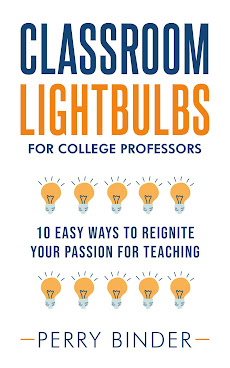
Welcome to The Inspiring Teacher Series - a tribute to inspirational K-12 teachers and college professors, and what we can learn from them and each other about the craft of teaching. Now let's meet...
Mara Mooney, J.D.
Assistant Professor of Legal Studies
Clayton State University
Morrow, GA
Ms. Mooney is a graduate of Lafayette College in Easton, PA (B.A., cum laude, Government & Law; Phi Beta Kappa) and Emory University School of Law in Atlanta, GA (Notes & Comments Editor, Emory Law Review; Dean's Fellow in Legal Research and Writing). She is the author of the textbook, Fundamentals of Georgia Real Estate Law, and co-author of the forthcoming article, “Assessing the Role of Personality Traits in Student Performance in Traditional, Hybrid, and Online Classes.” She has been teaching at the university level since 1996. Ms. Mooney is a full-time assistant professor in the ABA-approved Legal Studies Program and Paralegal Certificate Program at Clayton State University. She was instrumental in developing the program’s four-year bachelor’s degree in legal studies, and she is in the process of developing a minor in legal studies. Ms. Mooney is an active faculty member at Clayton State, where she has served on several university committees, such as Faculty Council, the University Hearing Panel, and the University Curriculum and Planning Committee. Prior to joining the faculty at Clayton State, she practiced law with Alston & Bird, LLP in Atlanta, GA, where she represented national commercial real estate clients. She also taught at two ABA- approved paralegal studies programs in Pennsylvania. At Clayton State, Ms. Mooney teaches traditional, hybrid, and online courses in Introduction to Law & Ethics, Legal Research & Writing, Real Estate Law, Contracts & Torts, Law Office Skills, and Homeland Security Law.
What inspired you to teach?
The hope that I could make a difference in people's lives inspired me to become a lawyer, but it also inspired me to ultimately become a teacher. My former life as an attorney was rewarding in some respects, but I felt that the long, solitary hours toiling away in a high rise office building, one cog in the corporate wheel, wasn't my true calling. I did a lot of soul searching, thought about the values and human interactions that were important to me, and realized that I was meant to be a teacher. Over the last ten years, I can truly say that the time I spend with students in and out of class, is the most rewarding and enlightening part of my professional day. I am so fortunate to have found a career that combines my two loves, law and teaching.
What teaching methods are most helpful in guiding students towards their
goals?
The teaching methods I find most helpful are to be active, engaging, and enthusiastic in my classes. Our students crave as many hands-on activities as possible. The more we can give students an opportunity to experience the actual type of work they will be doing, the more the students feel energized to achieve their professional goals. Students also respond well when current events are used as a catalyst for discussion in class. Finally, I believe that most students perform at an optimal level in class when their teacher promptly replies to emails and conducts him or herself in a fair, yet approachable manner. I once had a law school professor who made me feel incompetent for coming to his office with a question about civil procedure. As a result of that unpleasant experience, I realized the power that teachers have over their students' achievement in school. I try to serve as an example to students by treating them in a respectful, encouraging manner.
What would you like to improve about your teaching?
I am an organized person, and yet, I never have enough time to make those tweaks and improvements to my classes that I always say I am going to do, but never seem to have time to address before the next semester begins.
What skills should be emphasized in high school to succeed in your college class?
Writing, writing, writing! Poor written communication skills will translate to lower grades in school, but students may not realize that a poorly written cover letter or resume will also be a barrier to entry into their chosen career. I constantly tell students to read aloud what they have written and to proofread their work. There is an excellent book, written in an engaging style, entitled “Woe is I: The Grammarphobe's Guide to Better English in Plain English” by Patricia O’Conner, that can help. Students should understand that people will form professional impressions based solely on the quality of someone’s written work.
What is the one thing you wished you would have known when you started your teaching career?
I wish I would have known how rewarding it is - I would have started teaching even sooner!













.jpg)